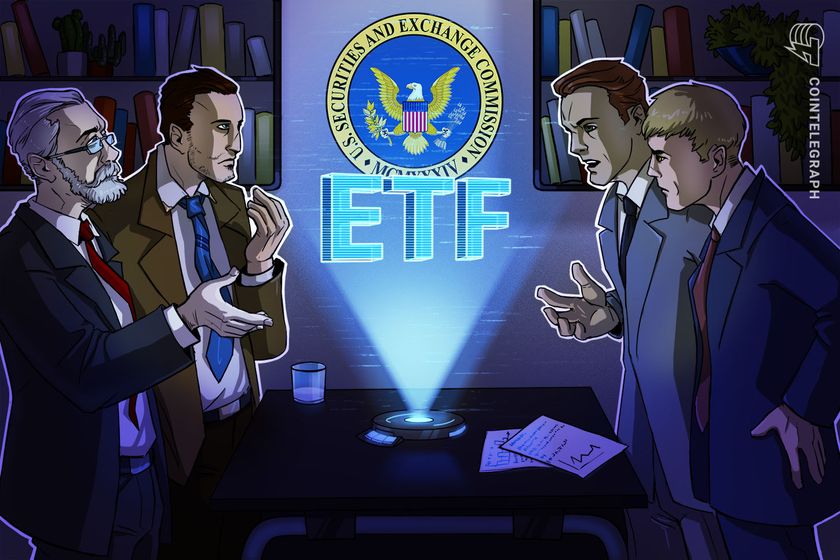SEC officials meet again with spot Bitcoin ETF filers


Meetings between asset managers and the SEC intensified over the previous weeks, with Gary Gensler’s team meeting with BlackRock and Hashdex representatives.
The United States Securities and Exchange Commission has held a new round of discussions with asset managers proposing a spot Bitcoin (BTC) exchange-traded fund (ETF) in the U.S., this time with officials from Gary Gensler’s office participating in the meetings.
Based on court filings, the regulator received representatives from BlackRock on Dec. 14 to discuss the proposed rule change that would enable the crypto investment vehicle to be traded on major exchanges. According to Bloomberg ETF analyst Jayme Seyffart, this is the third meeting between BlackRock and the SEC to review the application.
Meetings between asset managers and the SEC had intensified over the previous weeks. On Dec. 8, Grayscale and Franklin Templeton also sat down with regulators to go over their applications, a day after representatives of Fidelity appeared before the SEC.





















